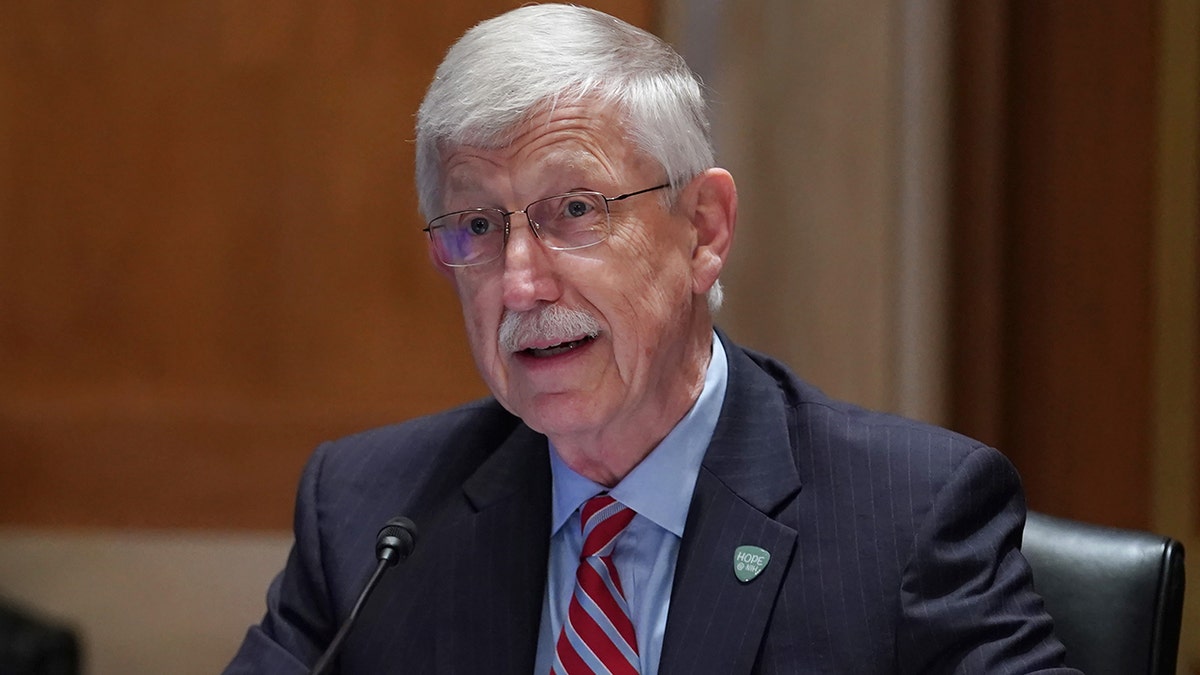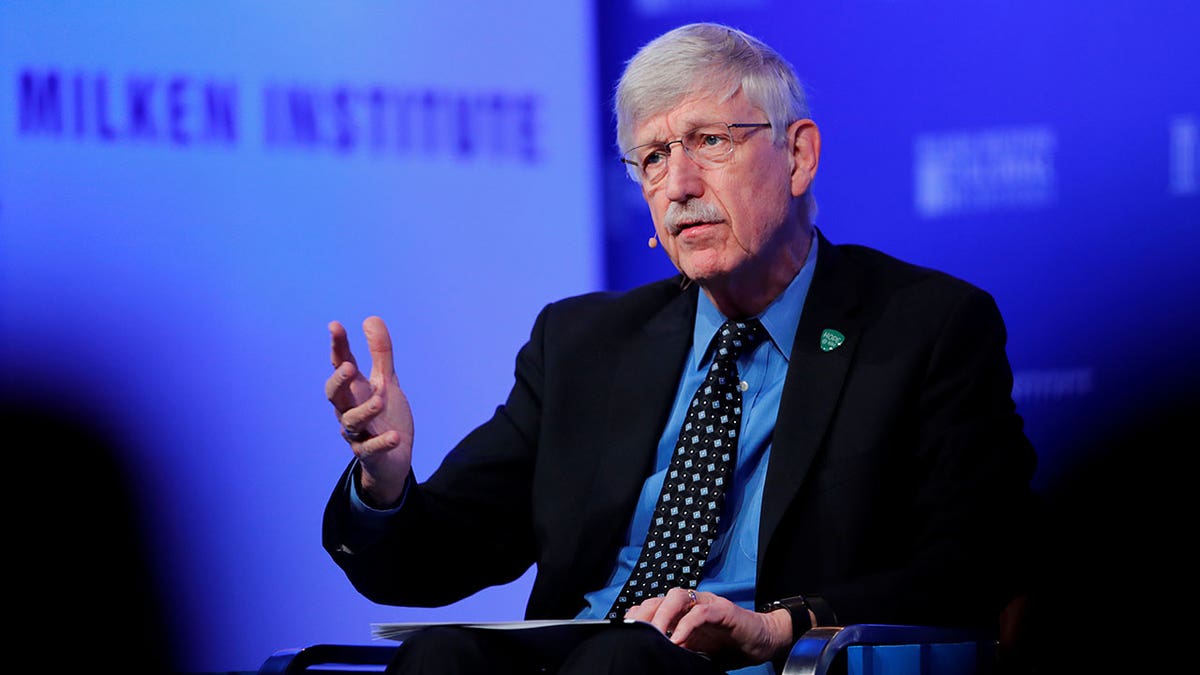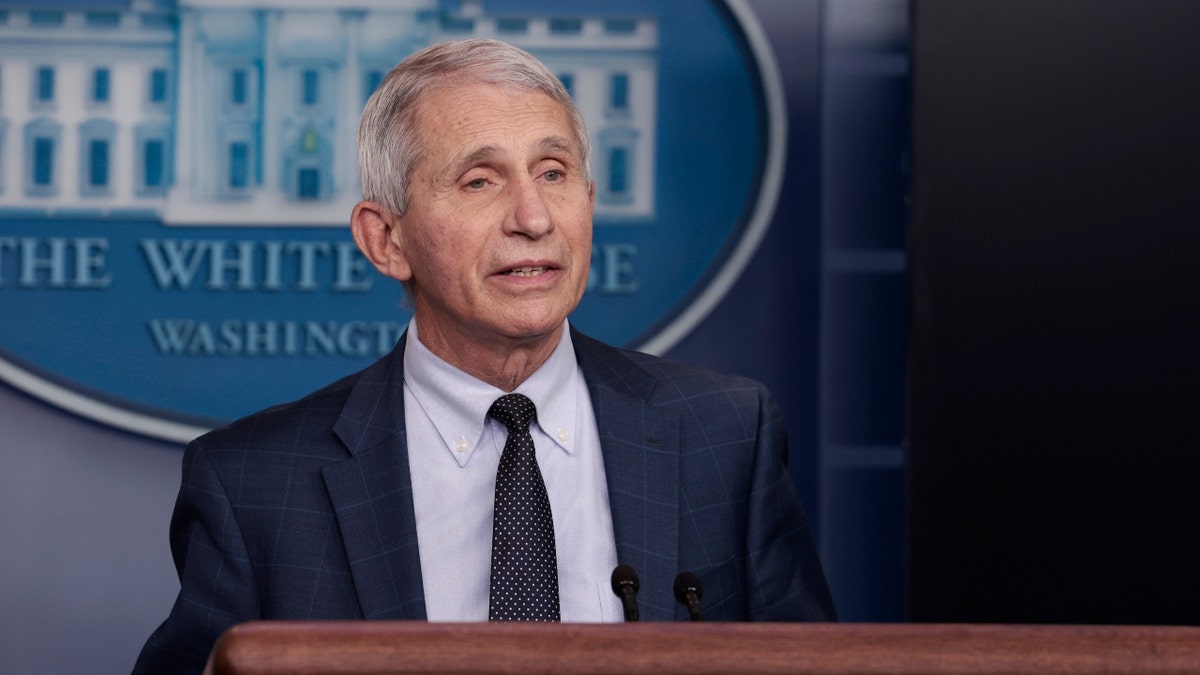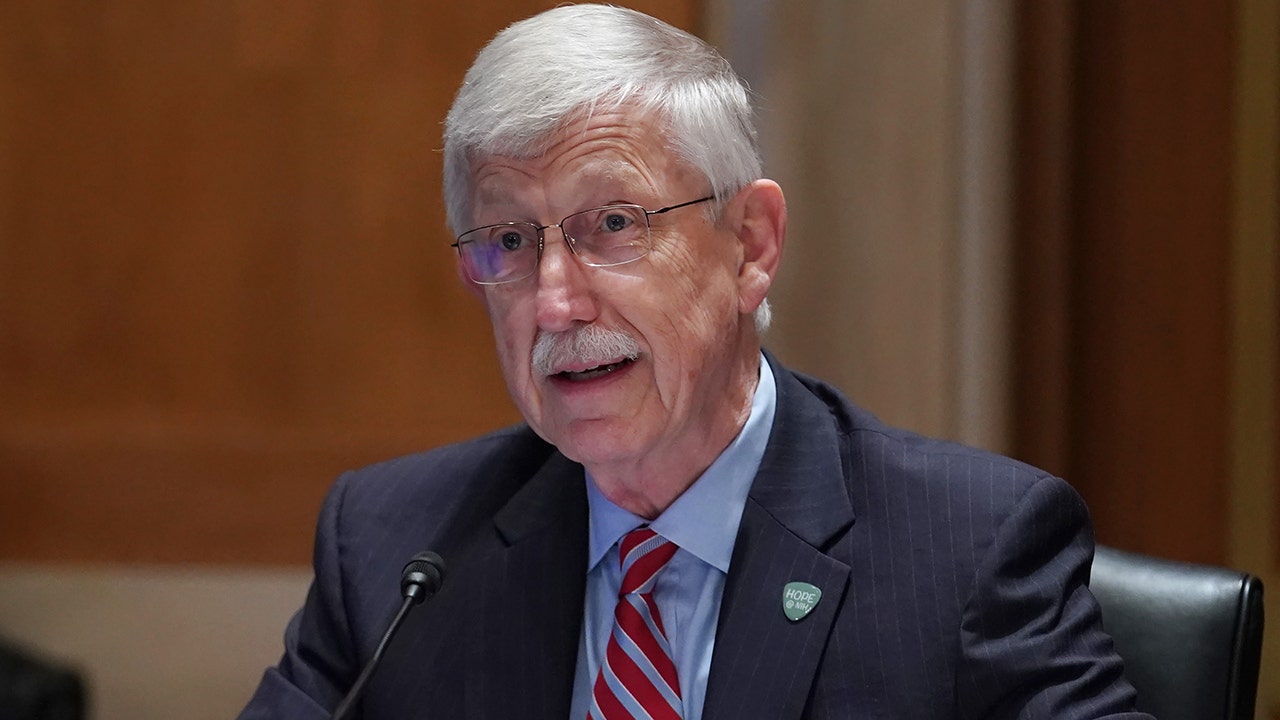Former National Institutes of Health (NIH) Director Dr. Francis Collins admitted to members of Congress last week that the coronavirus lab leak theory was in fact credible, despite his claims in 2021, in which he called it a “distraction.”
Collins made the admission during a closed-door, 7-hour interview on Friday with the House Select Committee on Coronavirus Pandemic, echoing testimony from Dr. Anthony Fauci, who was the public face of the U.S. coronavirus pandemic response.
The subcommittee’s chairman, Rep. Brad Wenstrup, R-Ohio, released the key takeaways from the interview with Collins, saying he served as Fauci’s “boss.”
FAUCI ADMITS SOCIAL DISTANCING NOT BASED ON SCIENCE, ‘SORT OF JUST APPEARED’

National Institutes of Health Director Dr. Francis Collins testify before a Senate Appropriations Subcommittee looking into the budget estimates for National Institute of Health (NIH) and the state of medical research on Capitol Hill, May 26, 2021, in Washington, DC. (Sarah Silbiger-Pool/Getty Images)
Fauci met with the subcommittee earlier in the week, testifying that the lab leak hypothesis – which was often suppressed – was not a conspiracy theory and that the policies and mandates he promoted may increase vaccine hesitancy in the future, Wenstrup wrote last Wednesday.
“Dr. Collins agreed with Dr. Fauci’s concession that the COVID-19 lab leak hypothesis is not a conspiracy,” Wenstrup wrote after interviewing Collins on Friday.
The congressman also said Collins “minced words” when it came to defining gain-of-function research in an effort to hide NIH’s involvement in funding the research in Wuhan.
“This wordplay mimics Dr. Fauci’s profuse defense of his previous Congressional testimony, where he claimed the NIH did not fund gain-of-function research in Wuhan,” Wenstrup wrote.
‘PANDEMIC SKIP,’ A COVID MENTAL HEALTH PHENOMENON, COULD DELAY MAJOR MILESTONES, EXPERTS SAY

Francis Collins, Director, National Institutes of Health, speaks at the Milken Institute 21st Global Conference in Beverly Hills, California, U.S., April 30, 2018. REUTERS/Mike Blake (REUTERS/Mike Blake)
Collins reportedly told the subcommittee that Fauci invited him to attend a conference call on Feb. 1, 2020, which prompted the “Proximal Origin” publication, which attempted to vilify and disprove the lab leak hypothesis.
“This testimony directly contradicts Dr. Fauci’s previous statements and raises further concerns about the U.S. government’s role in suppressing and vilifying the lab-leak hypothesis,” Wenstrup said.
In addition to going back on previous statements regarding the lab leak hypothesis, Collins agreed with Fauci that social distancing six feet apart was likely not based on scientific data.
COVID-19 LOCKDOWNS: WHAT’S UP WITH NOSTALGIA FOR THE ‘OUTBREAK ERA’?

WASHINGTON, DC – DECEMBER 01: Dr. Anthony Fauci, Director of the National Institute of Allergy and Infectious Diseases and the Chief Medical Advisor to the President, gives an update on the Omicron COVID-19 variant during the daily press briefing at the White House on December 01, 2021, in Washington, DC. The first case of the omicron variant in the United States has been confirmed today in California. ( (Photo by Anna Moneymaker/Getty Images))
Collins also reaffirmed previous statements attacking the Great Barrington Declaration, which encouraged the protection of the vulnerable and limited restriction of young and healthy Americans.
Collins made headlines in December 2021 after the House Select Subcommittee on the Coronavirus Crisis released an email where he expressed deep concerns about the herd immunity strategy being advocated by “fringe epidemiologists,” and called for “a quick and devastating published takedown” of the three experts promoting the herd immunity strategy known as “The Great Barrington Declaration.”
He told Fox News’ Bret Baier at the time that he was not going to apologize for his words and argued that hundreds of thousands of people would have died had the U.S. followed the strategy.
“I did write that, and I will stand by that,” Collins said at the time. “Basically, these fringe epidemiologists who really did not have the credentials to be making such a grand sweeping statement, were saying just let the virus run through the population and, eventually, then everybody would have had it, and everything will be okay.”
The interview with Collins came after the House subcommittee met with Fauci on Jan. 8 and Jan. 9 during a 14-hour interview, to discuss his influential role during the pandemic.
CLICK HERE TO GET THE FOX NEWS APP
Wenstrup’s committee has been investigating whether government officials at the time, including Fauci, worked to suppress questions about whether the pandemic was the result of a lab leak in Wuhan, China.
Republicans have accused those officials of pushing the natural origin theory in a bid to protect China.
Michael Dorgan of Fox News contributed to this report.





More Stories
Avocado Cacao Mousse – JSHealth
Janelle Brown on Garrison’s Mental Health Before His Death
How To Finally Beat Insomnia